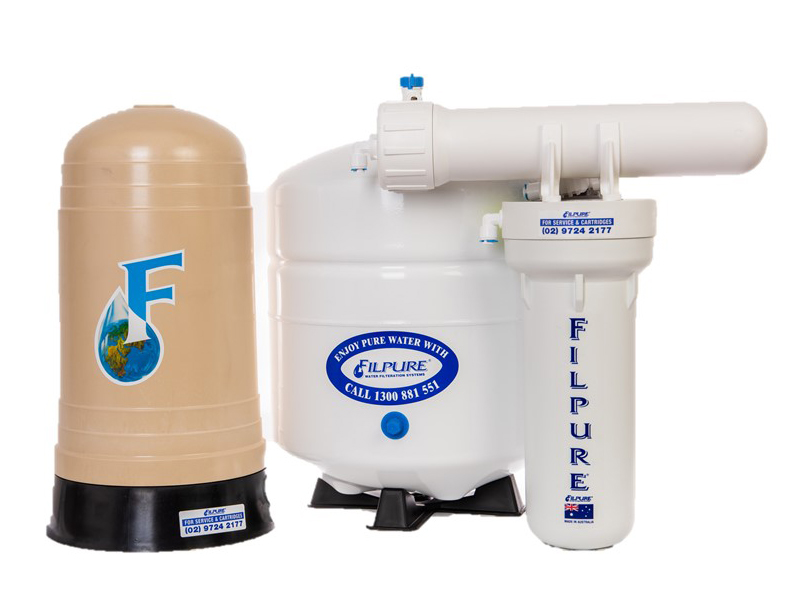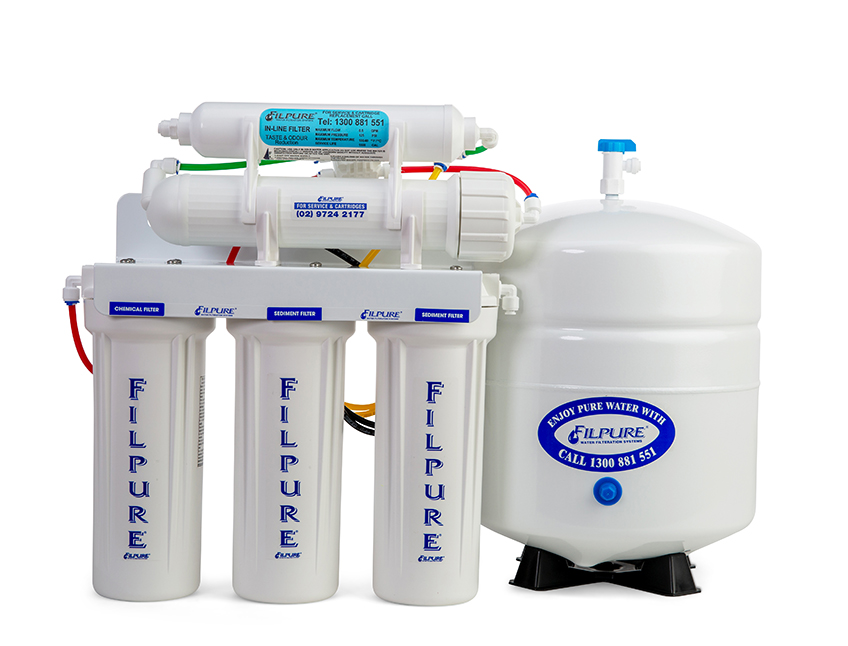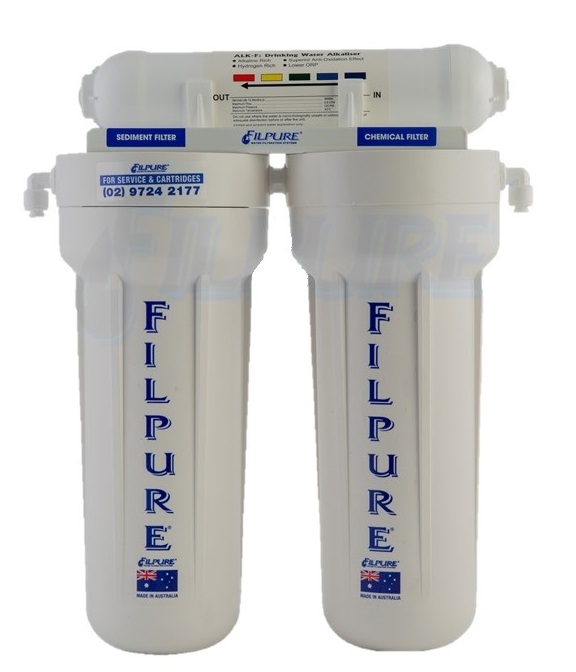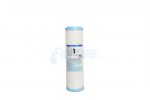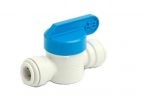Water & Health
Are You Drinking Enough Water?
We’ve all heard that drinking water will help keep us healthy. But to be exact, how much water is really enough?
The experts have always said, on average, that 8-10 cups of water will suffice daily need. However, that might not be enough. While 8-10 cups of water is a great standard of daily water intake, the most appropriate amounts of water intake are unique for each individual to meet one’s specific needs.
For normal body functions, adults will lose between two to three liters of water per day. Those who live or work in warmer environments, however, tend to lose more water each day. For example, athletes need to drink more water to balance their bodily fluids. For those people, drinking more water will make up for the bigger loss of water they had through perspiration, as well as in the regulation of body temperature.
Human body is made up of 55-70% water, but it does not replenish itself. Therefore, drinking water is the major way to help body maintain that healthy balance. But even still, many will walk around dehydration, most of the time unknowingly as long as they don’t feel the thirst. By the time someone gets thirsty, it is too late! In fact, when you’re thirsty, you could already be dehydrated, having lost as much as 1 to 2 percent of your body’s water content. Another common reaction to thirst is like this — if one is thirsty, they may go for a beverage that does not actually replenish the body. However, a cold soda may feel nice going down, but beverages with caffeine are really not meant to hydrate and may even ultimately increase your thirst.
Water is the best remedy for dehydration. If mild dehydration sets in, it can decrease one’s energy level and mental functioning and increase stress on the body. Severe dehydration can have far more damaging effects. There are three important rules when it comes to drinking water:
Drink twice as much as it takes to quench your thirst.
Drink frequently throughout the day to prevent dehydration.
Drink at least eight glasses daily, or one cup for every 10 kilograms of body weight. For example, a 70 kilograms person who does not exercise or work in hot climates needs 7-8 cups.
While some fruit juices and green tea may account for some fluid intake, you can count out beverages such as coffee or alcohol. They have a mild diuretic effect, which promotes urination and therefore water loss, which ultimately defeats the purpose.
QUICK TIP: A trick to ensure people are drinking their daily allowance is to fill a jug with the apportioning of water and keep it on your desk at work, or handy at home. The goal is then clearly marked. As you drink down the water, you know that you are on the right path to drinking enough water.
Signs of Dehydration
Dry, sticky mouth
Sleepiness or tiredness
Thirst
Decreased urine output
Few or no tears while crying
Headache, dizziness, or light headedness
Constipation
Believe it or not you can also tell if you are dehydrated by observing your urine. The colour of your urine can reflect how much water your body needs. The target colour we want to have is clear or light lemonade colour. This is a clear indication that you are drinking enough water. As soon as your urine turns bright to dark yellow it is a sign that you are entering dehydration. When the body feels it is not receiving enough water the kidneys begin to conserve water which makes urine more concentrated with waste products thus reaching a darker colour. Thus, those frequent bathroom trips are not a bad thing!
Water hydration is essential for every aspect of your health so get in the habit of sipping water throughout the day. You may even find yourself more energized as you increase your water consumption. Healthy living is one of the most important improvements we can make in our lives and definitely something to promote to all your loved ones. Support one another to make healthy and positive decisions together!
Alkaline Water & Your Health
What is “alkaline water” — and how alkaline should it be?
Water is considered alkaline if it has a pH reading above 7 (7 is neutral on the pH scale). The pH of some of the best-selling alkaline water brands ranges from 8 to 10.
But pH is not a case of “more is more” — we’re not after the highest pH we can get.
Very high pH may be unhealthy. When the pH of water reaches 8.8, there can be effects on digestion. That’s because the higher pH may deactivate the digestive enzyme pepsin, which would lead to a decrease in HCL production — and much weaker digestion.
That’s why the pH of municipal drinking water should be between 6.5 to 8.5, according to the EPA. And the same holds true for “alkalizing water”— no matter the price.
It’s not true that a high pH makes something alkalize your body.
Whether a food or liquid alkalizes the body does not depend on the pH reading of that particular substance. For example, lemon juice is very acidic (i.e., it has a very low pH), yet it is very alkalizing.
What’s important is not the original pH of a substance but instead, the net effect after it has been metabolized in the body. When acids like those from citrus are metabolized, they produce bicarbonate —a strong agent that helps the body alkalize. But other acids, like the hippuric acid found in cranberries, both enter and leave the body as acid, and so they are acid-forming within the body.
If it’s not pH, what makes something actually alkalize your body??
Alkaline forms of certain minerals found in a liquid can make it alkalizing.
Specifically, the body uses the alkalizing forms of potassium, magnesium, calcium and sodium to buffer acids. These minerals are alkalizing because they are attached to negatively-charged anions such as carbonate, hydrogen carbonate, and ascorbate.
what is “natural” alkaline water?
Real healing, alkalizing waters are natural mineral waters from under the ground. And studies show that natural mineral water is effective at promoting bone and overall health. The best known of these are the European mineral waters originating high in the mountains. These waters pick up mineral salts from rocks and earth as they forge their subterranean path down the mountains.
The World Health Organization reports concentrations of total dissolved solids from natural water sources varies from fewer than 30mg/L to as many as 6000mg/L, depending on the solubility of minerals from different geological regions.
According to European regulations, only water with at least 250mg/liter of minerals may be called “mineral water.” Water with 500mg/liter or more may also be designated “high mineral content.” Natural mineral water must be bottled at the source so its chemical properties can’t be altered. And indeed, studies show that natural mineral water is effective at promoting bone and overall health.
- Natural alkaline water is water with alkaline minerals dissolved in the water. These include calcium, magnesium & potassium.
- Electronic alkaline water this water uses electric plates to concentrate the alkaline minerals ions.
- After 36 years and tens of thousands plus Filpure customers, we’ve been able to observe the effects of drinking PURE alkaline water and eating alkaline food has had on thousands of people.
What to look for when assessing the alkalizing capacity of “alkaline” water
You can’t judge the effects of alkaline water by its labelled pH. Instead, look for the amount of the minerals listed on the water’s label.
It should look something like this:
Bicarbonate content
Calcium content
Magnesium content
Let’s investigate alkaline water’s benefits.
- Hydrate Better.
In 2016 a study in the Journal of the International Society of Sports Nutrition found those who drank electrolyte-rich alkaline water after a strenuous workout had lower blood viscositycompared to those who drank regular purified water during recovery. This suggests that if you drink alkaline water after a workout you’ll be better hydrated.
Blood viscosity is the measure of how efficiently blood flows through vessels, and doctors use it as an indicator of hydration. - Pump!
Let’s face it. As a nation we are chronically dehydrated. And yes, like it or not, good hydration is a cornerstone of physical performance, both in the gym and the court. We’re guessing that’s why the American College of Sports Medicine rolled out guidelines for fluid replacement during sports and exercise.
If, as the studies suggest, alkaline water is more hydrating than off-the-shelf filtered water, it will do a better job pumping those muscles during workouts. - Gut Health
A 2012 study in Annals of Otology, Rhinology & Laryngology concluded that alkaline water with a pH level of 8.8 may have therapeutic benefits for those with acid reflux.
The high pH level of alkaline water deactivates pepsin, an enzyme that breaks down proteins and causes the most damage to the pharynx, larynx, and lungs when reflux reaches past the upper oesophagus.
The symptom of this is heartburn. Maybe alkaline water can help. - Keeping Breathing
A survival study of laboratory mice found that those that were treated with alkaline water showed better survival and a longer lifespanthan their non-alkaline treated counterparts. Alkaline water was also shown to slow aging in mice by increasing their survival functions.
Another study in Finland of almost 100,000 death certificates, correlated with details of their water source found that people who had consumed ‘hard’ (alkaline) water lived longer and had less serious disease.
Purified Water= Fountain of Youth
There are many different man-made and natural contaminants that can occasionally be found in the public water system at health-threatening levels. Microbes including bacteria like coliform, E Coli, Cryptosporidium, and Giardia Lamblia can cause stomach issues, headaches, some gastrointestinal diseases, and severe illness. Radionuclides like Alpha emitters, beta and photon emitters, combined radium 226/228, and radon gas all can cause cancer, aging of the skin, and acne. Inorganic contaminants and volatile organic contaminants like arsenic, benzene, styrene, fluoride, lead, mercury, and copper can cause skin damage, cancer, circulatory issues, and even problems with your teeth and pregnancy. Disinfectants like chlorine, chloramine, and chlorine dioxide can kill vitamin E and other fatty acids that help keep your skin healthy. The water company might add extra disinfectants after a heavy rain to help kill germs. Disinfection by products like total trihalomethanes, bromate, halocetic acids, and chlorite can cause liver or kidney cancer along with skin, digestive, and nervous system problems.
The good thing is, tap water may contain very little to no levels of these contaminants most of the time. Unfortunately, no one ever knows when these contaminants may show up and at what levels. Even if the levels are extremely low, long-term exposure to many pollutants may still lead to moderate to serious health concerns that will affect your overall appearance and wellness. These health complications can be prevented by simply using a filtration system to purify your drinking water.
Not only is drinking purified water better for your skin and helps to prevent aging symptoms, but it could also help you to reduce the risk of having major health issues and protect your family from harmful contaminants. Finding the right purifying system that can rid your water of all of these contaminants and many more will help to ensure the health of you and your family as well as the condition of your skin.
Alternatively, you may drink bottled water, which some should have better quality than city or tap water, plastic bottled water contains micro plastic particles. However, home filtration systems that can remove over 60% to 99.9% of harmful chemicals are proven to be more cost-effective over time. When you think about how many bottles of water you go through a year, a filtration system will not only provide safe drinking water at your convenience but will also help save the planet from all those plastic water bottles waste.
How Water Causes Cancer & Disease
More and more communities are becoming concerned about the potential links between cancer and the chemicals found in their drinking water. Whether you are drinking from municipal water or from a well, additives and contaminates linked to cancer probably exist in your water.
Although federal law requires water providers to follow guidelines that are designed to keep these cancer-causing chemicals at “safe” levels in the water, there is much debate at what actually is “safe.” Because of these concerns, water providers are now required by law to publish the results of their water testing every year for public review.
Two of the common chemicals added to water to keep us healthy could actually be contributing to cancer rates: chlorine and fluoride. Studies concerning chlorine and fluoride have determined high levels of these chemicals could cause cancer.
Chlorine, used to disinfect most community water supplies, produce Trihalomethanes (THMs), chemicals formed when chlorine reacts with organic material, like bacteria, in water. The American Journal of Public Health published an article in regard to a 1992 study that linked Trihalomethanes in water to incidences of rectal, bladder and pancreatic cancer. The largest source of human exposure to THMs in the U.S. is from the consumption of chlorinated drinking water. Besides consuming water, other ways of exposure are from breathing in THMs vaporized in the air in the shower or the bath. Inhalation experiments with animals revealed that high levels are toxic to the liver and secondarily to the kidneys. Chronic oral exposure of humans at high doses results in adverse effects on the central nervous system, liver, kidneys, and heart. In studies of human populations using chlorinated drinking water in which chloroform is the predominant THM, small increases in the incidence of rectal, colon and bladder cancer have been consistently observed, with evidence strongest for bladder cancer.
Citizens groups frequently target fluoride, which is added to the water supply of most municipalities to help cut down on tooth decay in children, as a possible carcinogen. The Journal of Epidemiology, in 2001, linked fluoride as the genetic cause of cancer. A 1990 National Toxicology Program study determined fluoride could be the cause of cancers affecting the mouth, pharynx, colon and rectum. Another study, with results published in the Journal of Environmental Pathology, Toxicology and Oncology in 2001, linked osteosarcoma, a rare bone cancer, with fluoride.
Natural occurring radioactive agents like radium, uranium, and radon, seep into the water supply. High levels of these elements can cause cancer of the brain and bone.
People living in rural areas with their own water wells are also at risk of drinking potentially cancer-causing chemicals. Fertilizers, insecticides, and herbicides contain carcinogens that can filter down into the water supply. Nitrate, a by-product of fertilizer, also shows up in water supplies. In the human body, nitrate breaks down into nitrosamines, which are potentially cancer-causing agents.
Atrazine, an herbicide used on crops, is also found in drinking water. It is suspected of causing breast cancer. Another chemical, trichloroethylene, a solvent used in dry cleaning, is found sometimes in water supplies near facilities that do not dispose of their chemicals properly. It is considered a possible cancer-causing agent as well.
Most municipalities do not have the costly technology to filter these and other potentially harmful chemicals from the water. Neither do most bottled water companies, which frequently get the water they bottle from the same sources as municipalities. This is why chlorine is dumped in the water to kill these bacteria and viruses. Heavy metals however remain in the water and are consumed in your drinking water. Reverse osmosis filtering is one of the few effective ways to remove potential cancer-causing chemicals from your water. It can remove 90-99% of all contaminants in your water and leave you with pure water safe from any harmful contaminants. Water filtration systems are highly recommended to those with weaker immune systems to reduce the chance of being harmed by toxins in the water.
We unintentionally use our bodies as filters to filter out the many toxins we are exposed to and need to be careful because the effects may appear to reveal themselves in the future. EPA has set regulations that are ‘deemed safe’ but over time it may be difficult for your body to flush out these toxins. It is always best to be safe and have a filtration system to filter out toxins and contaminants. This will leave you with the convenience of bottled water quality water straight from your home.
Water the key to beautiful skin & hair
Importance of water
Clean water is one of the most essential elements to good health. In order to maintain a healthy body with beautiful skin and hair it is vital to have access to contaminant-free water. There is not a single element that is more important for our bodies than water is! Water is widely involved and essential for every cell that makes up our body.
Getting your daily requirement of water helps your organs function and keeps your skin clear and hydrated. Water supports the body’s digestion and eliminates many toxins we are faced with on a daily basis. Often times our body’s need for water is frequently overlooked as we do not realize the importance of clean water for the human body. Water that we consume and bathe in need to be carefully purified to protect us from the harmful contaminants found in water.
Effects of purified drinking water on the skin
Have you ever noticed when you haven’t had water for a few hours your skin becomes dull and feels dry? Skin is the biggest organ of the body and is mostly made up of water which serves to keep skin smooth, elastic and wrinkle free. Even losing two percent of the body’s water volume in a day can lead to mild dehydration problems. By drinking plenty of water your body will naturally flush out toxins, giving you a healthier glow. Drinking purified water keeps your skin clean and hydrated, encouraging clear and fresh skin. How much water? It is recommended to drink eight cups a day or one cup for every 10 kilograms of body weight. If you exercise regularly, it is recommended to drink even more water to replenish the water lost during the workout. You can determine if you are drinking enough water by the colour of your urine. If your urine is dark yellow then it is a sign that your body is dehydrated and you should increase your water intake. Pale yellow or colourless urine is a good sign of hydration, keep it up!
Not only is the quantity of water important, but so is the quality. Water that is contaminated may actually add to the toxicity levels in your body because of the various contaminants found in water sources. Numerous types of contaminants are leached into our water from pipes, pesticides, acid rain, toxic waste dumping, etc. Installing a quality reverse osmosis drinking water system is a great way to remove up to 99% of all of the contaminants in the water. Reverse osmosis is a water filtration system designed to produce bottled quality drinking water right at your home. Drinking purified water will allow your body to hydrate itself and focus on flushing out toxins stored in the body, without having to worry about adding in any additional toxins from the water.
Chlorine’s effect on our hair and skin
In order to keep hair and skin in beautiful hydrated condition, it is also important to drink lots of purified water. Your skin is made up of 70% water meaning your skin’s health and appearance may very well be a reflection of the quality and quantity of water you drink and bathe in. Hair is made up of 5% water and has 95% protein, and chemicals like chlorine can damage and breakdown proteins – think split ends. Therefore in addition to drinking more purified water, it is also important to bathe and shower in water that is filtered because chlorine can be readily absorbed through the skin and inhaled through the lungs. In fact, the amount of chlorine exposure from a single shower can be many times greater than that gained from a day’s supply of drinking unfiltered tap water.
Chlorine is used to kill germs and bacteria in the public water supply and is found in the majority of city water homes. Chlorine can cause negative effects on both our hair and skin. Chlorine strips the natural protective oils from the skin and hair, causing excess drying and frizz. Dry hair can be coarse, static and prone to tangles and breakage. Dry skin can lead to blemishes and the development of wrinkles. In order to prevent chlorine from damaging your appearance, it would be a good idea to install a whole house carbon water filter to remove chlorine from your entire home. This home water filter will also effectively remove a wide range of chemical and organic contaminants to deliver spa-quality healthier water to every faucet in the home for softer skin, smoother hair and healthier lungs.
The human body is made up of about 60% water meaning we are what we drink. Achieving beautiful skin and hair requires clean water, and in today’s world clean water does not come naturally. By installing a whole house water filter system, you will be able to protect your health and appearance for many years to come and that is a beautiful thing!
Discover How to Live Longer by Drinking Water
How long do you expect yourself to live on the earth?
It’s hard to imagine, but the truth is that human beings are living longer in the 21st century. In this modern age, life expectancy has increased by just over 30 years. There are lots of secondary reasons just why this is, but according to Dr. Jeffrey Griffiths of Tuft University School of Medicine, much of the credit for longer life spans can be attributed to clean water. Just what health effects are caused by clean drinking water?
Have a quick look at the list below to see:
Reduces daytime fatigue – Fatigue is one of the first signs of dehydration. Even a small drop in your body’s water levels can hurt you. Many people do not realize that the fatigue and lethargy they may be experiencing could be from mild dehydration.
Memory – The human brain is our most vital organ and is 95% water. Mild dehydration can reduce your mental energy and capacity, causing the memory to become impaired.
Nourishes skin – Skin cells, like any other cell in the body, are made up of water. Without water, organs will certainly not function properly or at their best.
Essential for digestion – The digestive system depends on a sufficient amount of water to help break down food.
Nutrient absorption and chemical reactions – Water helps carry nutrients and oxygen to the cells, and overall it is important in keeping everything moving in our body.
Helps remove toxins from your body – Water is a natural lubricant that softens stool and promotes evacuation of the bowels. Without water, the contents of your colon can dry out and get stuck, eventually causing constipation.
Aids circulation – Drinking water can help the flow of water in the body and help keep the blood circulation going.
Regulates your body’s cooling system – Water can help regulate body temperature and store extra heat in the body.
Reduce colon cancer and bladder cancer – Research shows that drinking adequate amounts of water can reduce your risk of colon cancer by 45% and bladder cancer by 50%.
Helps lubricate joints – The lining of cartilage between the joints use water as a cushion between the bones so that the joints can move easily.
So the answer is yes, drinking pure water can help you live longer. On a very basic level, your body cannot store up to its own supply of water. It needs a fresh intake of valuable water to hydrate cells and removes toxins through your liver and later kidneys. Without this vital replenishing of water, your body dehydrates, slows down and your blood literally ‘thickens’ as your body releases histamines in an effort to store water up in cells. This has a negative health effect as you are likely to experience headaches and lethargy among other generally negative health effects. Seeing how much the body really needs water it is imperative we all get our daily worth! If you are not sure how much water you should drink refer to this: One cup for every 20 pounds of body weight. For example, a 190-pound person who does not exercise or work in hot climates should drink 9.5 cups. If you exercise and work in hot conditions you should drink extra to account for the water that is lost in these conditions.
Water consumption is crucial to a healthy lifestyle. However, the quality of the water you are consuming is just as important. Pure water is the best water to drink to avoid any contaminants from entering your body. Drinking water with contaminants will reverse the benefits that pure water gives you by adding more toxins in your body. Filtration systems that use Reverse Osmosis technology are guaranteed to remove 90-99% of contaminants in the water. This is as good as, if not better, than bottled water! Giving your body pure water will allow it to absorb as much pure water as your body needs.
Is Your Shower Water Damaging your Skin?
Taking Showers Can Age and Damage Your Skin!
Are you starting to see the development of early wrinkles on your face and neck? You take good care of yourself, apply lotions and sunblock, eat sensibly, and exercise on a regular basis, and yet it doesn’t seem to be enough. While it may sound crazy, your premature aging appearance may actually be caused by the very activity that you consider an important beauty regimen – taking a hot shower!
In today’s society, everyone showers and bathes in heavily chlorinated water on a regular basis. Chlorine is a chemical additive that is used to treat our tap water and make it safe for drinking. Unfortunately, it is also a toxic and abrasive chemical substance that is extremely irritating to human skin and lungs. When you take a shower, the heat opens up your pores and your skin absorbs large amounts of chlorine from both the water and the steam. Chlorine has an oxidizing effect on human skin because it splits hydrogen from water, causing the release of nascent oxygen and hydrogen chloride. These gas compounds have been scientifically proven to cause tissue damage to our bodies at the molecular level.
Abrasive to human skin, the chlorine will quickly attack your epidermis removing all of its protective oils and proteins and leaving your skin to dry and crack. Repeated daily and over time, your skin will weaken under the stress caused by chlorine exposure, and the prolonged damage that it inflicts on your skin at the cellular level will eventually lead to the development of premature wrinkles. Even if you apply lotion or oils immediately after your shower it may still be too late to reverse the damage that had been done during the shower.
Famous celebrities and models have been using chlorine-free water for years and it’s one of the best-kept beauty secrets in the industry. Take a tip from them – chlorinated water should be removed from your daily cleansing rituals if you want to have young, supple, and healthy skin.
Why Do We Need to Remove Chlorine From Our Whole House
Chlorine has been used to disinfect water for consumption to eliminate waterborne disease for decades. It is extremely effective at killing pathogens and diseases. It is widely used because it’s inexpensive and easy to control and monitor. Chlorine easily maintains a residual level in the water distribution that continues protecting drinking water supplies from bacteria growth. This is why chlorine is considered one of the best disinfecting agents. Despite its effectiveness and inexpensive ability to disinfect the water supply, chlorination has some problems of its own.
Private well users may or may not be using chlorine to disinfect the water as they do have some choice in the type of disinfection. City water users do not have control of the disinfection methods and chlorine is most commonly used.
Chlorine produces harmful by-products
When chlorine is used as a water treatment, it combines with organic matter in the water to form by-product compounds called Trihalomethanes (THMs). These compounds are toxic when consumed, inhaled, or applied to the skin. Research conducted on the health effects of chlorinated drinking water has demonstrated a variety of toxicity issues. The Environmental Protection Agency (EPA) has concluded that there is evidence to support a potential association between long term exposure to high levels of THMs and bladder cancer as well as suggestions of an association with colon and rectal cancers. In addition, the Environmental Research Foundation cites several studies linking moderate to heavy consumption of chlorinated tap water by pregnant women with higher miscarriage and birth defect rates. Water disinfection is extremely important to rid of the bacteria and viruses in the water but there are other disinfection methods that do not produce these toxic by-products.
Our exposure to chlorine
The most obvious problem with chlorine in the water is that it leaves an unpleasant taste and smell behind. Chlorine can alter the taste of water, coffee, tea and other beverages. Chlorine is ingested from drinking water and also inhaled in showers. It can even make hair and skin feel dry after showering. The problem not only lies within drinking water, but also in bathing water. Showering and bathing in chlorinated water may expose us to even more chlorine than drinking the by products in the chlorinated water. While showering, chlorine is not only absorbed through skin but also vaporized in the shower and inhaled into the lungs. This means the majority of our daily chlorine exposure comes from showering. Chlorine poses a problem throughout all of our water faucets and should be removed from the entire water source.
How can I remove chlorine from my water?
Carbon filtration adsorbs chlorine without leaving any negative effects on your water supply. Adsorption takes place when your water comes in contact with the carbon filter. Carbon removes chlorine, taste, odour and organic compounds to deliver clean, filtered water to every outlet in your home. These systems are typically whole house 3 stage 4.5” by 10” or 4.5” 20” and are placed by the main water line. These whole house systems require to change annually.
For complete protection with Reverse Osmosis
To provide the safest drinking water, it is recommended to add a Reverse Osmosis drinking water system in your kitchen. Reverse osmosis is a 5 stage filter that will remove up to 99% of all contaminants in the water. With both the whole house filter and reverse osmosis system you will enjoy bottled quality drinking water and chlorine free showers and baths.
Back Pain Relief with Oral Rehydration
Is your back pain caused by dehydration?
Water affects every organ and cell within your body. You may not have known this, but water even plays an enormous role in the health of your back and spine. The lack of proper hydration could affect your back and could be a cause of back pain. Here’s how… Between every two vertebrae lies a disk, which functions as a shock absorber for all that we put our backs through every day. This disk has two parts: an outer, flexible but very tough ring, which is filled with a gelatinous substance, called the nucleus pulposus. This inner substance is primarily water. All day long, as gravity works on our upright spine, water is slowly squeezed out of the disks.
Back pain
Then at night, when we are lying down, the disks slowly rehydrate. This daily dehydration and nightly rehydration of the disks is the reason why most of us are generally about ¼ to ½ inch shorter when we go to bed than when we wake up in the morning! Regular movement during the day is also important to keep disks hydrated – as the spine moves forward and back, the disks will absorb what water is available.
Our disks will successfully rehydrate themselves during the night, and also during the day when possible, as long as there are adequate water levels within the body. When there is not enough water available to fully hydrate the gelatinous centre, the whole disk becomes compromised. The disk is designed to have a stronger outer ring of fiber with a softer, more gelatinous substance in the centre. When fully hydrated, so that the outer ring bears 25% of the weight load while the inner nucleus pulposus supports 75%.
When the inner portion is dehydrated, it cannot support its share of the load, so more and more of your weight is borne by the outer ring, which simply was not designed for that purpose. This can cause pain, swelling, and even ruptures or herniations of the outer shell of the disk. What this means is that one of the simplest and most effective ways to reduce back pain is to increase your daily intake of clean, healthy water, and to be sure to flex your back and neck front to back at times throughout the day. Light exercise is also beneficial; however if you want to avoid back spasms, it is suggested to consume water before, during, and after you begin any physical activities. Don’t wait until you are thirsty to drink water, this means your body is already dehydrated.
How much water should you drink?
It is often said to drink about 8 cups a day. However, this may not be true because drinking levels usually depend on the different needs of each individual. For example, an athlete will need to drink lots more water than someone who is not an athlete. The athlete loses more water while exercising so will have lots more to replenish. Another example is that two individuals of the same lifestyle but with different weights will also need a different amounts of drinking water. The heavier individual will need more water to stay hydrated. So, to make it more simple drink one cup for every 10 kilograms of body weight. For example, a 70 kg person who does not exercise or work in hot climates needs 7.5 cups of pure water. Drinking soda, tea, and coffee do not count even though they have water in it! These drinks are filled with artificial sweeteners and caffeine that will dehydrate you. Try to limit the number of beverages you drink other than water. Treat them as a dessert and not something you drink on a regular basis.
Drink twice as much as it takes to quench your thirst
Drink frequently throughout the day to prevent dehydration
Drink one cup for every 10 kilograms of body weight
If you exercise or work in hot climates you will need to drink extra amounts of water
Keep an eye on urine, yellow or amber colour means you need to drink more
After a strenuous workout, you have to replace the fluids you have lost. Otherwise, you will suffer chronic dehydration. Water reduces body temperature which is beneficial for those working in hot climates. Water will replenish the fluids your body has lost and help cool your body down.
Drinking more water is a simple preventative measure to protect against developing back pain and can even help reduce existing back pain. Simply stretching your spine forward and back periodically throughout the day will help to rehydrate your disks, provided that you have given your body enough water to work with. So don’t be a pain in the back and drink up today!
Reduce High Blood Pressure with Water
27% of all deaths in Australia attributed to disease of the circulatory system [www,abs.gov.au]- heart disease? High cholesterol and high blood pressure can lead to serious heart conditions. But, these two causes can be prevented.
Let’s start with high cholesterol. 6.1% of all Australians had high cholesterol, But first, just what is cholesterol? Cholesterol is a waxy, fat-like substance called a lipid that is found inside cells and blood. It is produced naturally in the liver, but some of the “bad” cholesterol comes from the food we eat, mainly in animal fats. While too much cholesterol can be harmful, a certain amount is necessary for bodily functions, such as making cell walls and acting as a building block to produce various hormones, bile acids, and Vitamin D.
Having too much cholesterol can block blood flow, resulting in a thickening and hardening of artery walls, a disorder called arteriosclerosis. Since this also narrows the arteries, blood flow can be slowed down, or even blocked. With less blood, the heart, therefore, gets less oxygen. That can result in chest pain, heart attack, or something as drastic as death. Lowering your blood cholesterol level is one of the best ways you can decrease your risk of heart disease. And, even if your cholesterol is close to the desirable range, 200 milligrams per deciliter of blood, you can lower it and reduce your risk of heart disease.
With all this thickening going on, water can play a very important role. Drinking water can actually thin the blood, making in natural way to help the blood pump more smoothly. When the body is dehydrated, the blood becomes acidic which can lead to a build-up in LDL levels of cholesterol. Drinking plenty of water will keep your blood ways clean and eliminate the excess build-up of cholesterol waste from the body. Drinking plenty of water will keep your blood ways clean! Moreover, drinking lots of water can improve your metabolic rate, which may help you lose weight. Since exercise, along with a healthy diet, is an important contribution to the lowering of cholesterol, once again, water needs to be drank in order to replenish what was lost. In fact, consumption of water so you are fully hydrated can increase your metabolic rate!
Does Drinking Water Lower Blood Pressure and Cholesterol?
Let’s move on to high blood pressure, also known as hypertension. Blood pressure refers to the force of blood pushing against artery walls as it makes its way through the body. Just like air in a tire, blood fills arteries to a certain capacity, and anything over that capacity can have damaging effects. (Ever have too much pressure in your tires?) Just like high cholesterol, high blood pressure can threaten healthy arteries and lead to life-threatening conditions such as heart disease and stroke. And what’s scary is that there are not any real symptoms until which is why high blood pressure is known as the silent killer.
Hypertension can be combated in many ways, such as quitting smoking, stopping drinking alcohol, or losing weight. Water can also help lower this pressure, as blood is mainly comprised of water. Excessive salt consumption can adversely affect blood pressure, but luckily sodium can be flushed out of the body by drinking clean purified water daily. So, drinking a healthy amount of water each day can maintain a healthy heart but what happens if we don’t drink enough water? Dehydration will definitely affect your blood pressure adversely. Our kidneys clean our blood. When we are dehydrated and have high blood pressure, the blood flow to our kidneys is reduced which makes our bodies think they are low on water. They will thus react by telling the brain to constrict veins and arteries, which will make the blood pressure even higher.
Importance of Water Quality
The quality of the drinking water can also have an effect on our cholesterol levels. Animal studies have shown that chlorine in drinking water can raise levels of plasma cholesterol. This is something we must be aware of because most tap water in Australia is chlorinated. Therefore, it is a good idea to install a quality water filtration system that can remove chlorine and other harmful chemicals from your drinking water.
What To Do Next
Drinking plenty of clean water can help combat high cholesterol and high blood pressure. Remember it is also never too late to improve your heart health with the help of regular exercise, balanced nutrition, and a positive outlook on life. The human body is very resilient and if you treat yourself well, you will be surprised by your body’s own natural ability to heal itself and lower bad cholesterol. And yes, our body’s own natural ability to heal can be improved with a healthy weight and diet. It makes water drinking more essential to our daily life. Here’s drinking to your health and achieving your goals. We know you can do it!


